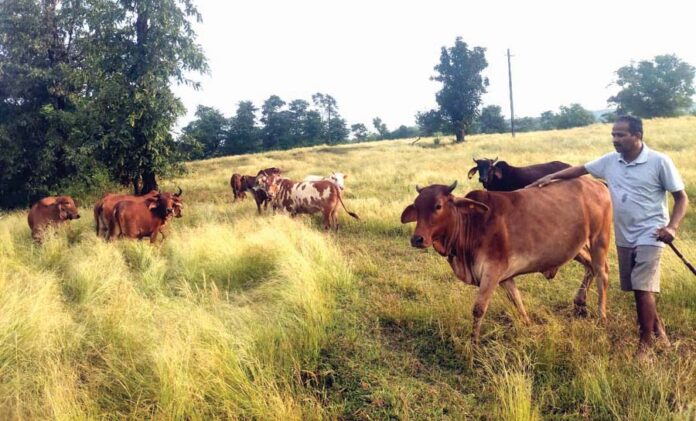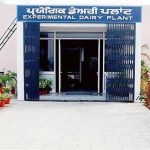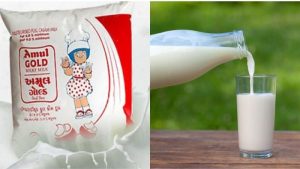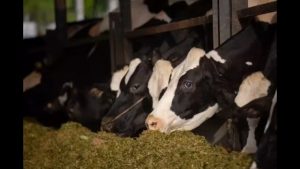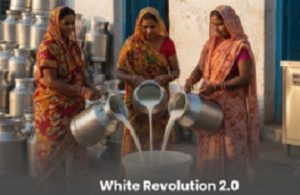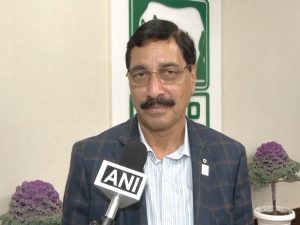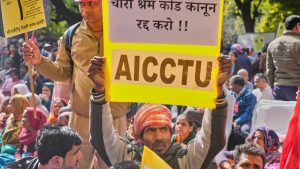
Venturing into A2 milk production is the way to go for farmer Dilip Pundalik Narulkar, Hassapur, Pernem, who believes in value-addition in agriculture, finds out Shoma Patnaik.
While stable livelihood from agriculture continues to be difficult for most farmers in Goa, it is farmers like Dilip Pundalik Narulkar, Hassapur, Pernem, who are leading by example in having a farming model that is remunerative as well as sustainable in the long run.
An integrated farmer who considers that progress in agriculture can only come about if farmers earn higher income through allied activities, Narulkar’s latest focus is A2 milk which is double the price of regular milk.
A2 milk is trending in demand among a select category of consumers. “It is a milk variety with limited clientele because it is costly. Only people who know about A2 buy it,” he says.
Narulkar explains that, A2 milk is from Indian cow breeds such as Gir, Sewal (Haryana), Rathi, Karparkar (Rajasthan)et and the Goan breed Sweta Kapila.
“The milk is different from standard milk from Jersey or hybrid cows raised in commercial dairy farms. A2 milk is devoid of beta- cacim proteins found in Jersey or hybrid livestock. In taste it is sweeter, thinner, and has no typical milky smell found in conventional packaged milk,” informs Narulkar.
He discloses that, there are few dairy farmers in the state who are into A2 milk production because of the high costing involved in production.
“Indian cow breeds are not as high-yielding as hybrid cows and give less milk. They yield two-three litres of milk per day, vis-à-vis Jersey cows which give average 15 litres per day. The cost of production however for the dairy farmer is the same whether it is a A1 or A2 cow,” he explains.
Narulkar sells the A2 milk under his Narulkar Ranch brand name at Rs 120 per litre. His A2 paneer rate is Rs 1,000 per kg and A2 ghee Rs 3,500 per kg.
As an integrated farmer, Narulkar combines ragi crop with range of agricultural activities such as horticulture, dairy farming, fodder cultivation, vermi-composting, among others.
He grows vegetables such as bhindi, cucumber and turmeric, makes cold-pressed coconut oil and has a small kulagor with areca nut, cashew, mango, coconut, and chickoo plantations. For the last seven years all of Narulkar’s farm produce is fully organic.
“My vegetables are sold to daily customers as well as to the Goa Horticulture Corporation outlets. The supply of bhindi to the GSHC outlets is around 100 to 120 kg per day. The turmeric, ragi cereal as well as the A2 milk is packaged and sold to local grocery chains such as Delfinos, AJ Supermarket, Oxford Supermarket in Anjuna, Tinto in Caranzalem and a department store in Dona Paula. I also do home delivery of A2 milk (on alternate days) and have a buy-back guarantee if the milk is spoilt,” says Narulkar.
He adds that, A2 milk although of high value as compared to regular milk is only profitable to a dairy farmer if the processing, packaging and marketing is done in-house.
The Narulkar Ranch production of A2 milk is from four dairy farmers who collect around 70- 80 litre of milk per day. “Individual production of A2 milk by a single farmer is not viable because each of us have few cows. A better alternative is to form a group and increase the production,” he says.
Narulkar’s future plan is to increase A2 milk production to 150 litre per day and enlarge the range of supply to Margao and nearby areas in the coming months. He wants to get into eco-tourism which will lead to an additional income stream. He is also moving into aquaculture and has set up a fish farm for breeding of sweet water, tilapia fish.
For his astuteness in farming, Narulkar has won several awards. In 2020-21, he received the Fr. Inacio Almeida award for organic farming from the state directorate of agriculture. In 2023, he got the Millionaire Farmer of India (MFOI), new Delhi, award in the entrepreneur- farmer category.
“I am in no way a millionaire farmer however I am of the view that farmers can make more money by improving the quality of agriculture. In Goa 99 per cent of dairy farmers are doing business because they get subsidy from the government. Dairy farming is cost-effective if it is on large scale and has backward and forward integration. Just rearing livestock and supplying milk to the co-operatives is not lucrative because of the high cost of fodder, feed, labour, in the state,” he says.
Narulkar is also the vice chairman of Pednem Taluka Farmer Producer Company, a registered company with the ministry of corporate affairs. The FPC functions like a cooperative and has around 300 farmer members. The FPC motto is to work towards the government’s goal of doubling farmer’s income. Narulkar is from Goa’s traditional farming community who lived in Vasco city as a youth since his father worked in Mormugao Port. His father though working in the port was a die-hard cultivator who kept up the family occupation of farming. Narulkar himself worked in Mapusa Urban Cooperative Bank, until it closed down.
“In Goa it is common to have farmers with some kind of alternate employment. To be a farmer who survives on only agriculture is tough and only possible if there is own ancestral land, and farming is undertaken on a large scale,” says the progressive farmer from Pednem.
You can now read the most important #news on #eDairyNews #Whatsapp channels!!!
🇮🇳 eDairy News ÍNDIA: https://whatsapp.com/channel/0029VaPidCcGpLHImBQk6x1F
